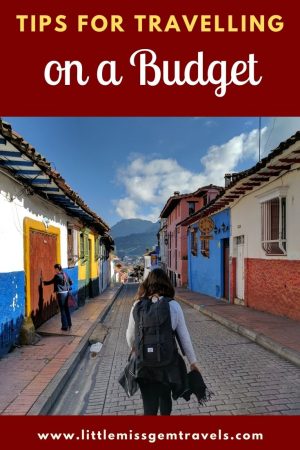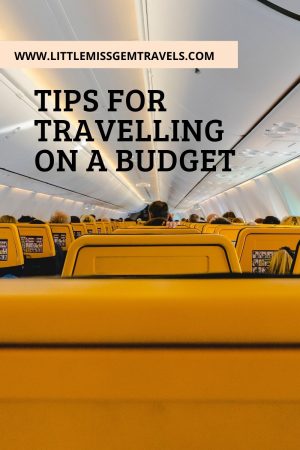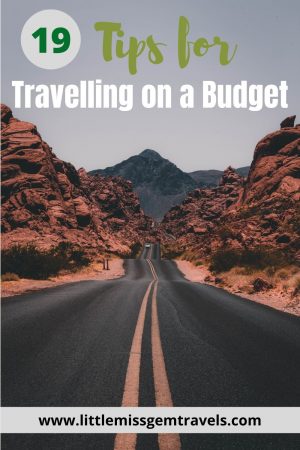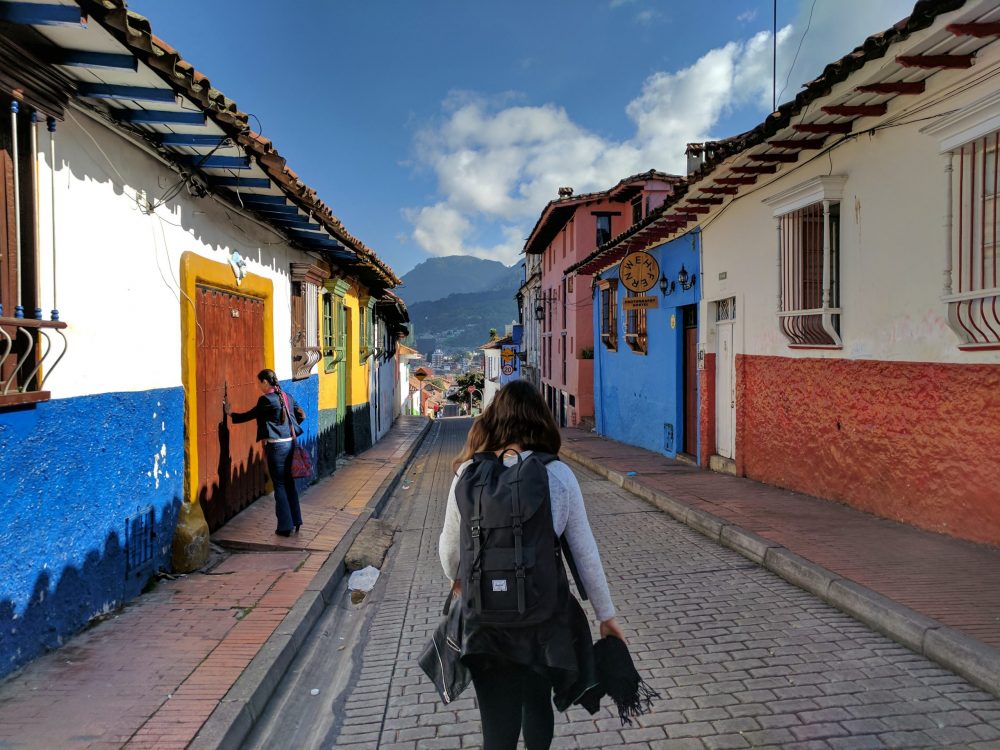The posts in this blog may include affiliate links. This means that when you decide to purchase anything through these links I get a small commission at NO extra cost to you.
Travelling is a wonderful opportunity to see stunning locations, do things you wouldn’t normally be able to do in your local area, and experience new cultures, so travelling on a budget obviously makes it more accessible, plus it means that if you spend less on one element, you have money to spend on another.
19 Tips for Travelling on a Budget
Set Your Budget and Stick to It
Get Travel Insurance
Travel to VISA Free Destinations
Not all countries require a VISA or you to visit on short trips, so depending on your citizenship you’ll have to check what the entry requirements are for the destination you’re planning to visit. Due to Brexit UK residents will find themselves faced with new travel restrictions to a large part of Europe as of the beginning of December.
Check Entry Requirements (UK only)
Use Skyscanner to Find Flight Deals
Consider Your Destination
Depending on where you live in the world you should always be able to find somewhere that is cheaper than you’re local area. The key is to do your research, will you get a good exchange rate on the currency? Is the food good quality and value or money? Are there plenty of free activities and attractions? Is the local public transport worth it or are you going to be walking everywhere?
Travel Off-Season
One of the only drawbacks to travelling off-season is the lack of guarantee with the weather, on the other hand, your chosen destination will be a lot less busy and crowded and you’ll be able to save a significant amount of money compared to what you’d spend should you travel at peak time.
Fly Mid-Week
Flights are more expensive at weekends due to the simple fact that more people are available. Travelling on a Tuesday or a Thursday is usually a lot cheaper than the weekends.
Pack Well and Pack Light
Plan all of your outfits in advance, mix and match pieces of clothing, layer up thin items, pack plain clothing and then use jewellery and makeup to brighten them up. Only pack exactly what you know you’ll need, the less you pack the lighter your luggage will be and if you can manage with hand luggage only you won’t have to pay extra to check in your bags at the airport. Don’t forget that if you do happen forget anything essential then you can probably find a shop and buy it during your trip.
Pack a Water Bottle and/or Coffee Cup
Everyone should by now have started reducing (or cut out completely) their use of plastic. Taking your own water bottle means you can fill up for free from your accommodation or a local café. Some coffee shops actually give discount if you take your own cup so it should help save you a few pennies.
Walk or Use Public Transport
Walking is the cheapest form of transport and by far the best way to discover a new location. If you are travelling a little further and need to take public transport then a bus is typically the cheapest. You should try to avoid taxis and Ubers if you are travelling on a budget as they are by far the most expensive form of transport. Just do a little bit of research beforehand and see what is the cheapest but also the most efficient.
Avoid Using ATMs
It is often cheaper to take money out on your travels than it is to get it exchanged before you go, and ATMs often charge more for smaller amounts withdrawn. I personally exchange my money before I travel and avoid using ATMs as much as possible. If you have lots of cash, only carry what you will need for the day, split between your purse, bag and pockets and then leave the rest in a locked and secure place in your accommodation and split.
Take a Free Walking Tour
Something I would always recommend for travelling on a budget is to look for free things to do. Many cities nowadays offer free walking tours and the majority of the time they are well worth doing. You’ll be shown areas that you probably wouldn’t have found otherwise, you’ll be given local tips and recommendations and you’ll learn exciting and interesting facts about the location, the history and the culture. Just remember that it’s customary to tip at the end.
Avoid Eating Out
It is often tempting to eat out in the popular, touristy area with a great view, however these nearly always means paying a premium price so stopping for a quick coffee, or having a night out and a glass of wine could end up blowing your budget and leave you short for the next day. Obviously you’re supposed to enjoy yourself so don’t completely deprive yourself of a piece of cake or a cheeky cocktail but you should also consider stopping off at a local grocery store and picking up a sandwich or salad and popping it in your bag for later that day. I always buy a large packet of biscuits on the first day of my trip and then carrying it with me so I can snack periodically each day.
Take a Food Tour
Something I would always recommend to people who are travelling on a budget is to take a food tour. Particularly if your are unfamiliar with the cuisine of that destination, it’s a great way to learn about the culture and discover the authentic food available from local suppliers and businesses. I’ve taken a number of food tours and I would suggest doing so within the first 24 hours of arriving as it’s a great way to quickly explore the local area, plus you get to eat a huge amount of food over the course of a few hours which will save you money and you’ll probably be full until the next day.
Talk to Locals
Forget the places that are popular with tourists, ask a local where they like to get coffee, or where they like to have a meal. The people who live in a location are much more likely to know where is value for money and less crowded. If I’m looking for a nice coffee shop or decent restaurant I always speak to the receptionist at the hotel, if I’m looking for a great bookshop or a nice bar then I might ask the person serving that cup of coffee.
Eat at Quiet Times
Depending on the country you visit you may find you have to adjust your eating habits. In the UK most people stop work for lunch between 12pm and 2pm so if you’re visiting a city and eating out you might want to stop for a coffee around 11am and then grab something else to eat after 2pm, this way you’ll be more likely to get a table somewhere that’s value for money and sit in peace. When travelling on a budget do your research, find out when the most popular times for lunch and dinner are in that destination and then avoid it and the crowds.
Eat/Drink Local Produce
When eating and drinking whilst on a trip, aim for local brands as you’ll find it’s a lot cheaper than sticking with the well known international brands, as there will obviously have been some form of import tax which will end up being passed on to you as the customer, so if you’re travelling on a budget this will definitely help save you some pennies.
Learn the Language
If you know the local language, then use it. If you only know a few basic words then use them anyway. Locals will know that you’re a tourist regardless, but the more you can understand and prove that you know what is being said the less you are likely to be charged. Some destinations often have different rates for locals and tourists so if you can talk to them in their language they might just charge you the local rate.
Keep Your Unused Euros
If you’ve travelled to Europe and you’re likely to return within the next couple of years I really wouldn’t bother exchanging your money back when you get home. Save yourself from losing money on exchange rates by simply holding on to your unused cash and saving it for your next trip to Europe.
What are your tips for travelling on a budget and saving money?
Let me know in the comments.



